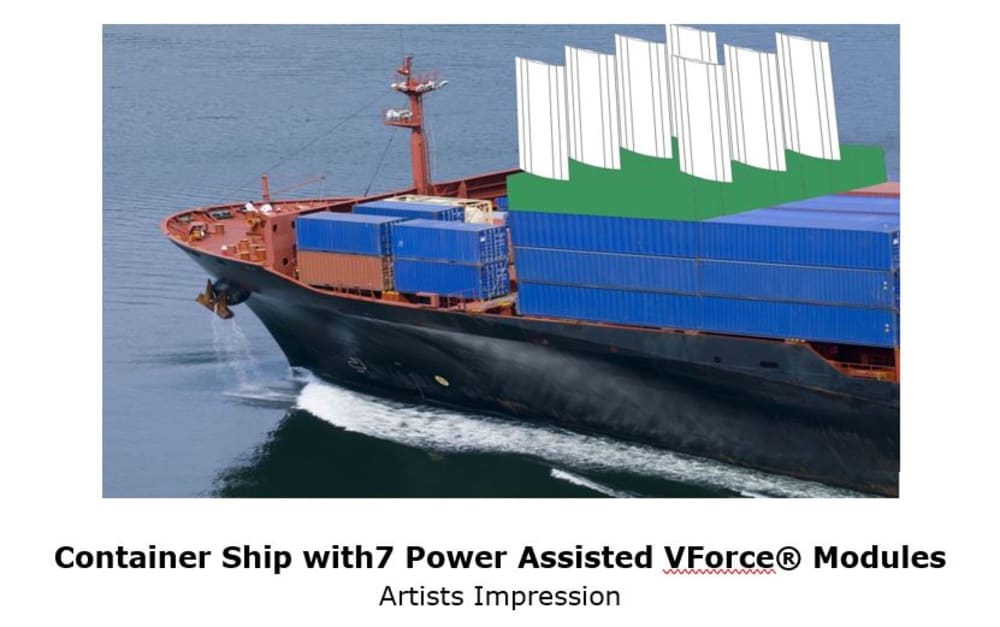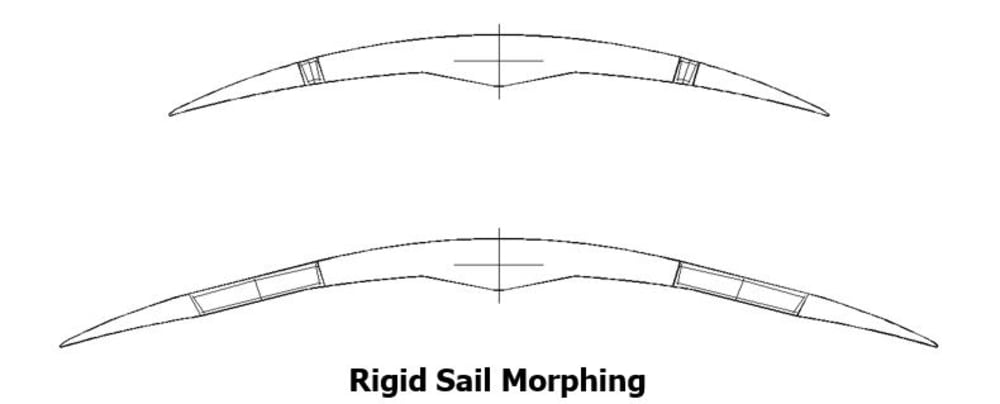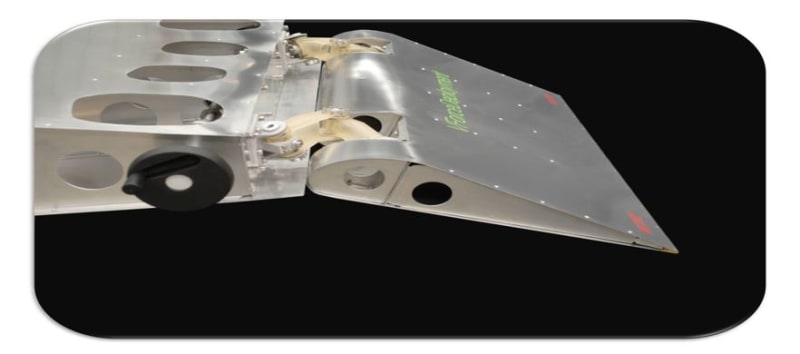Summary
Generating additional force by morphing of rigid sails will provide a significant advantage in reducing fuel consumption and reducing emissions. Shipping is a major contributor of emissions (pollutants) such as greenhouse gases and VForce® technology reduces this and helps save the earth’s finite resources. The morphed sails take advantage of lower winds and provide other benefits as listed below.
The VForce® mechanism is a lightweight, uncomplicated and is ideally suited to the morphing of rigid sails to generate additional force to propel marinecraft.
Technology
The VForce® mechanism is the same patented Compound Motion Structure as used to morph Aircraft wings, Rotorcraft blades and Wind Turbine blades.
The main concept is for fully autonomous powered and controlled modular units that can be placed onto ships decks including container ships. This would eliminate retrofitting therefore reducing costs with more effective use by placing and removing when required.
The bridge will have wireless contact to monitor performance and switching on or off. The sails will be retracted into the module when not needed such as in dock or land transport. Control can be by computer functions linked to wind speed and direction sensors or manual override.
The mechanisms can be actuated by electric motors, hydraulic motors and/or hydraulic pistons with power to operate generated from a wind turbine incorporated into the module to generate electricity into batteries for storage.
Retrofitting and new builds can still have the VForce® Rigid Sail technology built in.
On Marinecraft expanding and contracting of the morphed rigid sails allows for slight to gale force winds. The University of Tokyo has predicted that fuel costs could be reduced by retrofitting opening rigid wing sails to a “motor-sail”, without altering the primary propulsion system of a modern tanker or bulker, ship operators can expect 20-40% fuel savings. (University of Tokyo/International Renewable Energy Agency (IRENA) 2015 Publication, Renewable Energy Options for Shipping).
Benefits of VForce® Technology
- Robust, rigid, light weight and sophisticated (simplicity)
- High aerodynamic efficiency
- Higher aerodynamic force requiring lower sail angle of attack
- Higher lift coefficient can result in a reduced sail chord length and possible weight
- Centre of force (pressure) remains the same during morphing
- Feathered to prevent damage during storms
- Sealed joints with no surface discontinuities
- Lower noise in ship
- Mechanism ideally suited to tapered sails or tapered portions of sail length
- Provides assistance while docking
Like this entry?
-
About the Entrant
- Name:John Clark
- Type of entry:individual
- Software used for this entry:Autodesk Inventor Professional
- Patent status:patented








